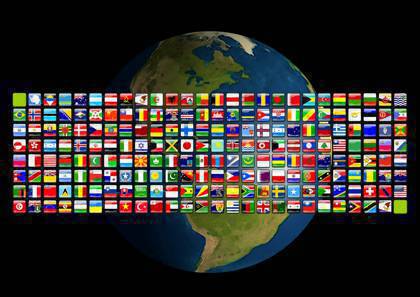

 Deepak Chopra,
Deepak Chopra,

The term “worldview” might sound abstract and rather high-flown, but in reality, it strikes close to home in everyone’s life. None of us perceive the same reality. We make it personal, mirroring our deeply held beliefs and assumptions. We all accept our personal reality as valid, even though it is an interpretation that is transient, erratic, unpredictable, and constantly shifting.
What keeps the picture stable is that the constant bombardment of sights and sounds is anchored in something more permanent, your worldview.
In my latest book, Quantum Body, I contend that the time is ripe for a new worldview because the ones that most people take for granted have serious if not fatal flaws. This is a critical issue, so let me expand a bit on what is at stake. Your deepest beliefs act like a filter.
They color, censor, select, and distort reality “out there.”
If you carry this insight far enough, you wind up with the Vedic position from ancient India that there is no independent reality “out there.” There is only a mirror of the self. In everyday life, East and West, this sounds preposterous. What if two people step off a curb at the same time and both are hit by the same bus? Person A believes that there is no independent reality “out there,” while person B accepts the physical world as it is. Does it matter when the bus hits them?
Here we arrive at the core belief that sustains reality or illusion. It is also what separates bondage from freedom. Set aside your immediate reaction, which almost certainly says that the bus doesn’t care who it hits—the experience will be the same. Instead, look at the situation as a clash of worldviews.
The materialist worldview accepts the physical world as it is (in recent decades, the word “physicalism” has come to replace “materialism” in this kind of discussion). The bus, the victim's body, and everything else in the picture exists from the build-up of subatomic particles into atoms and molecules. No matter how complex any problem might be, these building blocks don’t change. They apply universally.
By contrast, there is another worldview based on consciousness. It holds that creation is based on a primal creative impulse that precedes anything material. In a religious society, this primal consciousness is God or the gods, but it doesn’t have to be. You can use any other favored term, such as pure awareness, cosmic consciousness, Brahman, and so on. What matters is the essence of reality residing in consciousness. In its creative unfolding, pure awareness transforms itself into an infinite array of appearances. The entire physical world down to the smallest subatomic particle is one appearance, but so is the human mind.
It is hard to deny that awareness is non-physical, as are its products, such as love, knowledge, insight, and understanding. It is equally hard to deny that consciousness is needed to create all experiences (including the experience of being a physicalist). If consciousness is inseparable from everything we call real, the worldview that places consciousness as our source and origin becomes very compelling.
Does a better, more convincing worldview change what happens if you are hit by a bus? If you have evolved to experience life as eternal bliss-consciousness, the harm done to your body is insignificant. You see yourself as a knower of consciousness. No matter how different a heart cell is from a cloud, a happy thought from a forest fire, or a distant galaxy from a bus, you see a common thread in each—consciousness has transformed itself into different modes that each require a unique mode of knowing.
If you hold, on the other hand, that harming your body is a source of profound pain and suffering, with the terrifying prospect of death hovering in the shadows, then being hit by a bus is catastrophic proof of your worldview.
The example of being hit by a bus doesn’t decide which worldview you should adopt. But it fits into the notion that the world is a mirror. You are constantly testing your core beliefs, and ultimately your worldview, in every experience you have. The benefit of a worldview based on consciousness is that you are testing some fundamental, even life-changing, propositions. They include the following:
• Reality is on your side.
• Invisible forces support your evolution.
• The light of awareness can heal.
• Infinite possibilities exist in consciousness.
• Bliss consciousness lies at the core of existence.
• There is inherent meaning in your life.
• You are woven into a grand plan overseen by higher consciousness.
• Your worth is infinite.
• The ideal life is to live in the light, which means living your true self.
On the spiritual path, you test these propositions to see if they are true. They can only be true if they apply to you personally. Otherwise, they remain at the level of rosy wishes and distant spiritual promises. Unfortunately, the vast majority of people don’t test these propositions, and most have only heard of them vaguely, if at all. The practical result is that we go around testing another set of propositions.
Life is random.
The forces of nature are arrayed against us.
Human beings are a speck in the vast emptiness of space.
Death is final and arrives when the physical body perishes.
Survival is a constant struggle.
Luck is fickle and determines who wins or loses.
Pain and suffering are inevitable.
The best you can hope for is to minimize pain and maximize pleasure.
In reality, most people don’t test these propositions at all but accept them at face value. This is a form of unconscious bondage. Once someone decides that a conscious life is better than an unconscious one, I think there is no competition between which set of propositions I’d want to test.
DEEPAK CHOPRA MD, FACP, FRCP, founder of The Chopra Foundation, a non-profit entity for research on well-being and humanitarianism, and Chopra Global, a whole health company at the intersection of science and spirituality, is a world-renowned pioneer in integrative medicine and personal transformation. Chopra is a Clinical Professor of Family Medicine and Public Health at the University of California, San Diego, and serves as a senior scientist with Gallup Organization. He is the author of over 90 books translated into over forty-three languages, including numerous New York Times bestsellers. His 91st book, Total Meditation: Practices in Living the Awakened Life explores and reinterprets the physical, mental, emotional, relational, and spiritual benefits that the practice of meditation can bring. Chopra has been at the forefront of the meditation revolution for the last thirty years. His latest book, Quantum Body co-authored with physicist Jack Tuszynski, Ph.D., and endocrinologist Brian Fertig, M.D. TIME magazine has described Dr. Chopra as “one of the top 100 heroes and icons of the century.” www.deepakchopra.com